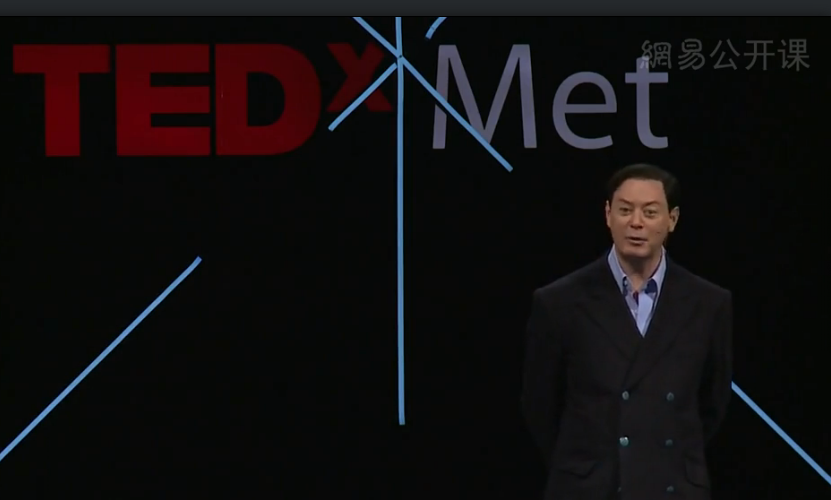It's easier to help schizophrenics who perceive
相對而言幫助精神分裂癥患者更容易
that there's something foreign inside of them that needs to be exorcised,
他們認(rèn)為自己身體里面有某些異質(zhì)需要被驅(qū)除
but it's difficult with depressives,
但對于抑郁癥患者來說這很難
because we believe we are seeing the truth.
因?yàn)槲覀儓?jiān)信自己看到的是事實(shí)
But the truth lies.
但事實(shí)是會(huì)說謊的
I became obsessed with that sentence: "But the truth lies."
我非常喜歡這句話“事實(shí)是會(huì)說謊的。”
And I discovered, as I talked to depressive people,
當(dāng)我與抑郁癥患者交談時(shí)我發(fā)現(xiàn)
that they have many delusional perceptions.
他們有很多妄想出來的念頭

People will say, "No one loves me."
人們會(huì)說,“沒人愛我。”
And you say, "I love you, your wife loves you, your mother loves you."
然后你說,“我愛你,你的妻子愛你,你的母親愛你。”
You can answer that one pretty readily, at least for most people.
你可以很快給出這個(gè)答案,至少對大多數(shù)人是如此
But people who are depressed will also say,
但是抑郁的人還會(huì)說
"No matter what we do, we're all just going to die in the end."
“不論我們做什么,最終都是要死的。”
Or they'll say, "There can be no true communion between two human beings.
或者他們說,“兩個(gè)人之間是不可能有真正的親密交往的,
Each of us is trapped in his own body."
我們每個(gè)人都被自己的身體所束縛了。“
To which you have to say,
對于這個(gè)你只有回應(yīng)說
"That's true, but I think we should focus right now on what to have for breakfast."
“這點(diǎn)沒錯(cuò),但我覺得我們眼下要考慮的是早上該吃什么。“
A lot of the time, what they are expressing is not illness, but insight,
許多時(shí)候困擾他們的不是疾病本身,而是對一些事實(shí)的偏執(zhí)
and one comes to think what's really extraordinary
他們會(huì)對一些事實(shí)超乎常人的在意
is that most of us know about those existential questions and they don't distract us very much.
但是對于我們絕大多數(shù)人而言,并不在意這些有關(guān)存在的問題
There was a study I particularly liked in which a group of depressed
我有一個(gè)特別喜歡的研究,是要一組抑郁癥患者
and a group of non-depressed people were asked to play a video game for an hour,
和一組非抑郁癥患者分別打一小時(shí)的電子游戲
and at the end of the hour,
一小時(shí)結(jié)束的時(shí)候問他們
they were asked how many little monsters they thought they had killed.
他們認(rèn)為自己殺了多少只小怪獸
The depressive group was usually accurate to within about 10 percent,
抑郁組的答案往往準(zhǔn)確,誤差不超過百分之十
and the non-depressed people guessed between 15 and 20 times as many little monsters as they had actually killed.
而非抑郁組的人估計(jì)的小怪獸數(shù)量卻是實(shí)際殺掉的15到20倍
A lot of people said, when I chose to write about my depression,
當(dāng)我決定寫下自己的抑郁經(jīng)歷時(shí),許多人說
that it must be very difficult to be out of that closet, to have people know.
要揭開這個(gè)秘密讓別人知道一定非常不容易
They said, "Do people talk to you differently?"
他們說,”人們會(huì)用不一樣的口吻跟你說話嗎?“
And I said, "Yes, people talk to me differently.
我說,”是的,人們用不一樣的口吻跟我說話。
They talk to me differently insofar as they start telling me about their experience,
這種不一樣體現(xiàn)在人們會(huì)告訴我他們自己的經(jīng)歷
or their sister's experience, or their friend's experience.
或是他們的兄弟姐妹的經(jīng)歷,或是他們朋友的經(jīng)歷
Things are different because now I know that depression is the family secret that everyone has.
我現(xiàn)在明白,每個(gè)家庭都埋藏著一個(gè)抑郁的故事,這改變了我的看法











